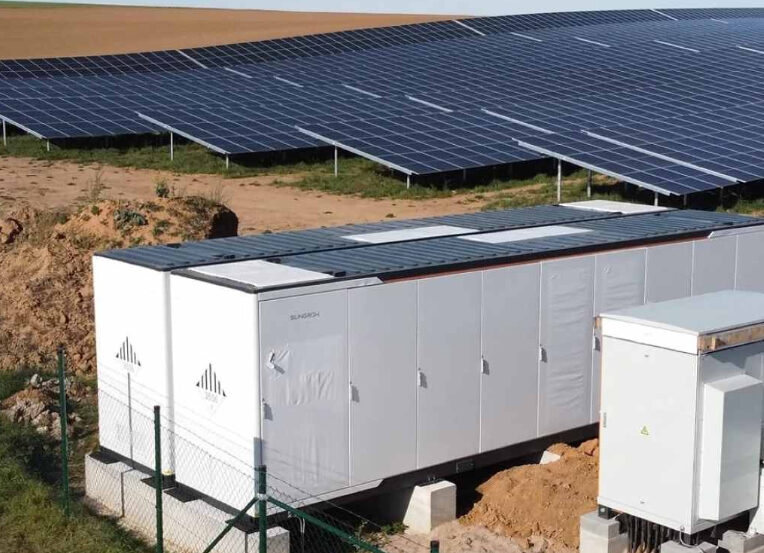From pv magazine Germany
The Fraunhofer Institute for Microstructure of Materials and Systems IMWS wants to develop an efficient methodology to reliably predict the reliability and service life of photovoltaic inverters and storage systems.
The research center's scientists said their new approach would help further reduce the costs of the PV technology, both for manufacturers and the operators of solar power generators. A research consortium has been formed by Fraunhofer IMWS and it includes German PV inverter manufacturer SMA Solar Technology AG, Electronicon capacitors GmbH, Merz Schaltgeräte GmbH and the Institute for Machine Elements of the University of Stuttgart.
The scientists want to implement field data analysis of inverter failures and analyze possible aging mechanisms at the component level. They also aim to evaluate and optimize test and measurement procedures with regard to accelerated aging. Based on the data, a methodology for predicting the service life of inverters and storage systems will then be developed.
“In photovoltaic applications, inverters convert the direct voltage of the solar modules into alternating voltage, which can then be fed into the grid,” said Bianca Böttge, who coordinates the project at Fraunhofer IMWS. “They also play a key role in the provision of reactive power or control power as well as for energy management, for example when combined with a battery storage system.” Inverters should be extremely robust against environmental factors in order to guarantee continuous operation for 20 years and more. In particular, the interaction of voltage, temperature and humidity can accelerate aging and failure processes, according to the researchers.
The research project aims to close a knowledge gap about the actual behavior of materials and components in photovoltaic systems. In order to ensure the necessary performance, the power electronic components are currently being tested intensively and in some cases manufactured in such a way that they exceed the requirements, according to the Fraunhofer IMWS.
At the same time, there are fast innovation cycles with inverters, which is why experiences gained so far are not necessarily transferred to new model types or product generations. The method to be developed could therefore also contribute to a cost reduction for the manufacturer and at the same time reliably secure the service life of the devices for the operators of the systems, Böttge added.
The research project is being funded by the Federal Ministry of Economics and is part of the program “Innovations for the energy transition,” which focuses, in particular, on film capacitors and electromechanical switches.
This content is protected by copyright and may not be reused. If you want to cooperate with us and would like to reuse some of our content, please contact: editors@pv-magazine.com.




By submitting this form you agree to pv magazine using your data for the purposes of publishing your comment.
Your personal data will only be disclosed or otherwise transmitted to third parties for the purposes of spam filtering or if this is necessary for technical maintenance of the website. Any other transfer to third parties will not take place unless this is justified on the basis of applicable data protection regulations or if pv magazine is legally obliged to do so.
You may revoke this consent at any time with effect for the future, in which case your personal data will be deleted immediately. Otherwise, your data will be deleted if pv magazine has processed your request or the purpose of data storage is fulfilled.
Further information on data privacy can be found in our Data Protection Policy.